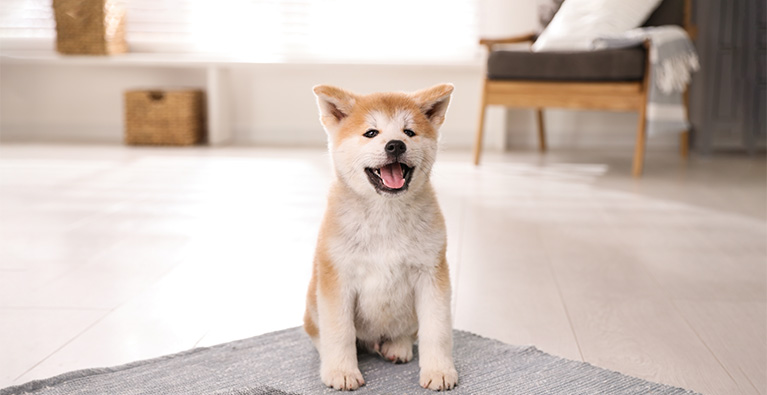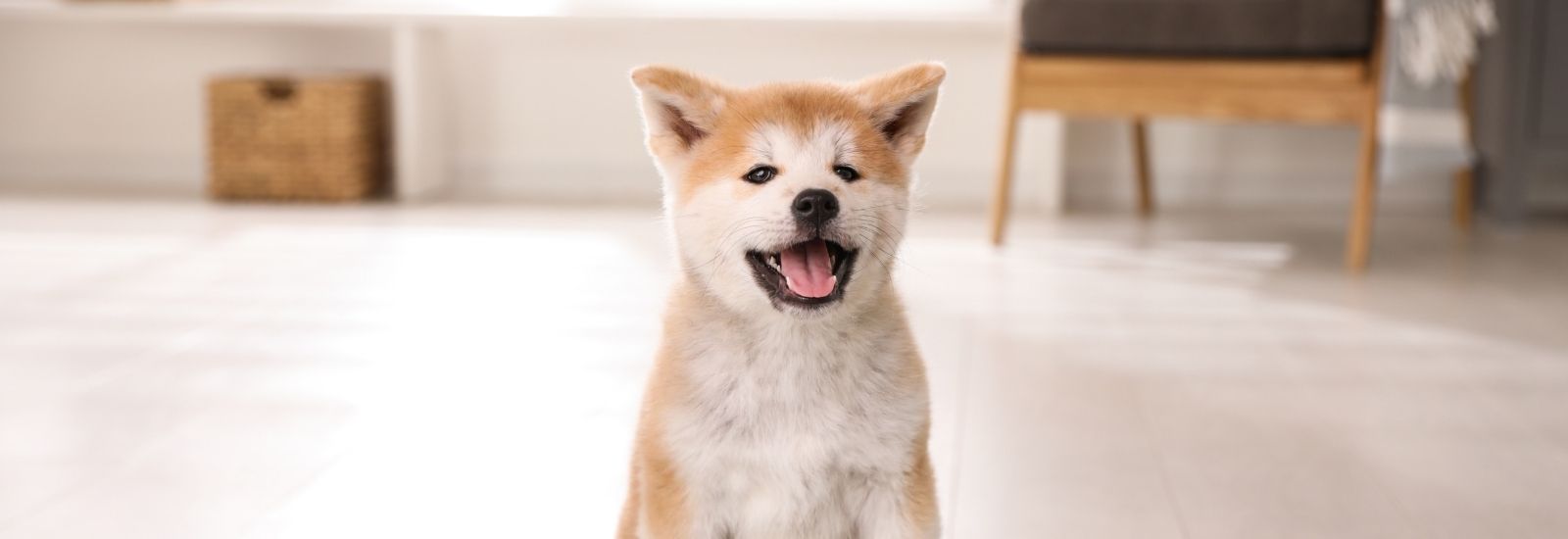Tips & Tricks: How to housetrain your puppy
Housetraining your puppy is an important and delicate task for both you and your pet. We have some useful tips and tricks to help you housetrain your puppy.
No puppy is housetrained right from the start
Little accidents are practically unavoidable – this is something that every new puppy owner finds out in a very short time. When a puppy needs to relieve itself, there is very little time to react. It is by no means ill-intentioned behaviour when a puppy urinates in the home, because it is in its nature to avoid soiling its “nest” whenever possible. This is why the mother dog would never scold her puppy. She has the patience and understanding that you should also have.
When does a puppy become housetrained?
Most puppies move into their new homes at the age of eight to 12 weeks – and are often not yet housetrained. The time when the new family member becomes housetrained varies from puppy to puppy. The physical requirements have usually been reached by the time the puppy is around 14 weeks old. Most puppies are housetrained at the age of three to four months. By the age of five months at the latest, there should be no more accidents.
How often should a puppy be taken for a walk?
A puppy should be taken for a walk at least five times a day. As a rough guide, a puppy under 12 weeks needs to go out approximately every 1½ to 2 hours, puppies up to the age of 16 weeks every 2½ hours, and those aged four to six months around every three to four hours. It is best to go on the first and last walk straight after getting up and immediately before going to bed. In the time in between, the walks should take place after every meal, after sleeping, and after playing. Also look out for signs given by your puppy: whimpering, restlessness, sniffing the ground or turning around in circles can indicate that it needs to go out quickly.
Tips for the night
If the puppy needs to “go” at night, it will look for a corner and relieve itself there. To avoid this, you should stay close to the puppy so that you notice when it becomes restless. Either let your puppy sleep in a comfortably cushioned transport box or place its dog bed in a large cardboard box. In both cases it will not be able to sneak away unnoticed, but will start whimpering when it has to go. You then have to react quickly. Grab your puppy and carry it as quickly as possible to the place where it can relieve itself.
How should I react if my puppy makes a puddle?
The puppy first has to learn where its toilet place is. A great deal of patience and understanding is therefore required. You should never punish your puppy by putting its paws in a puddle it has caused. It would not understand why you did this and you could cause lasting damage to the relationship between you and your puppy. You should also never loudly scold or hit your puppy. If you catch it in the act, tell it with a short “no!” that this is not the right place. Then take hold of your puppy and carry it outside as quickly as possible. If it then finishes relieving itself there, make sure that you praise it.
If there is already a puddle on the floor, it is best not to show any reaction at all. If you scold the puppy now, it will not be able to associate it with the puddle. Clean the area very thoroughly, because any smell left behind could encourage your pet to urinate here again. It is best to use a special cleaning agent, because everyday household cleaners may not be enough
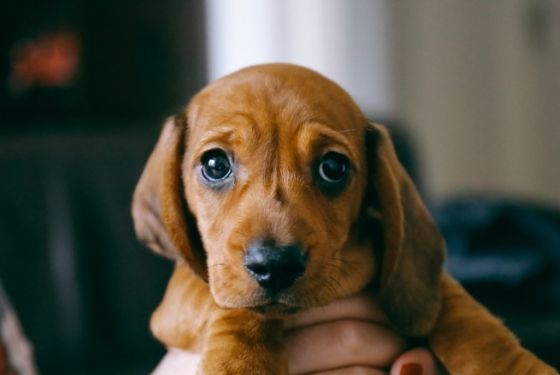
The 4 most important points
- Show your puppy patience and understanding if it relieves itself indoors. It is not yet physically capable of controlling its bodily functions for very long.
- A puppy is physically able to become housetrained from around the age of 14 weeks. On average, a puppy is housetrained at the age of three to four months.
- Up to the age of 16 weeks, a puppy has to go outside approximately every two hours. Look out for the signs, such as soft whimpering or yelping, turning around in circles and sniffing the ground. You then have to hurry.
- Take your puppy outside again shortly before bedtime and let it sleep close to you in a box. If it needs to relieve itself, it will let you know.
You may also like this
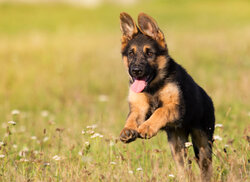
When a puppy keeps biting
How to stop your puppy from biting
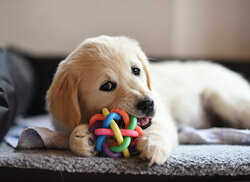
A puppy is moving in
Tips on picking it up, the items you need and acclimatisation

Puppy school
Attending puppy school is very important
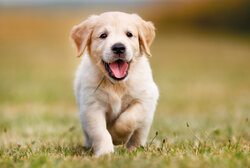
Feeding your puppy properly
A healthy diet is important for the growth phase
